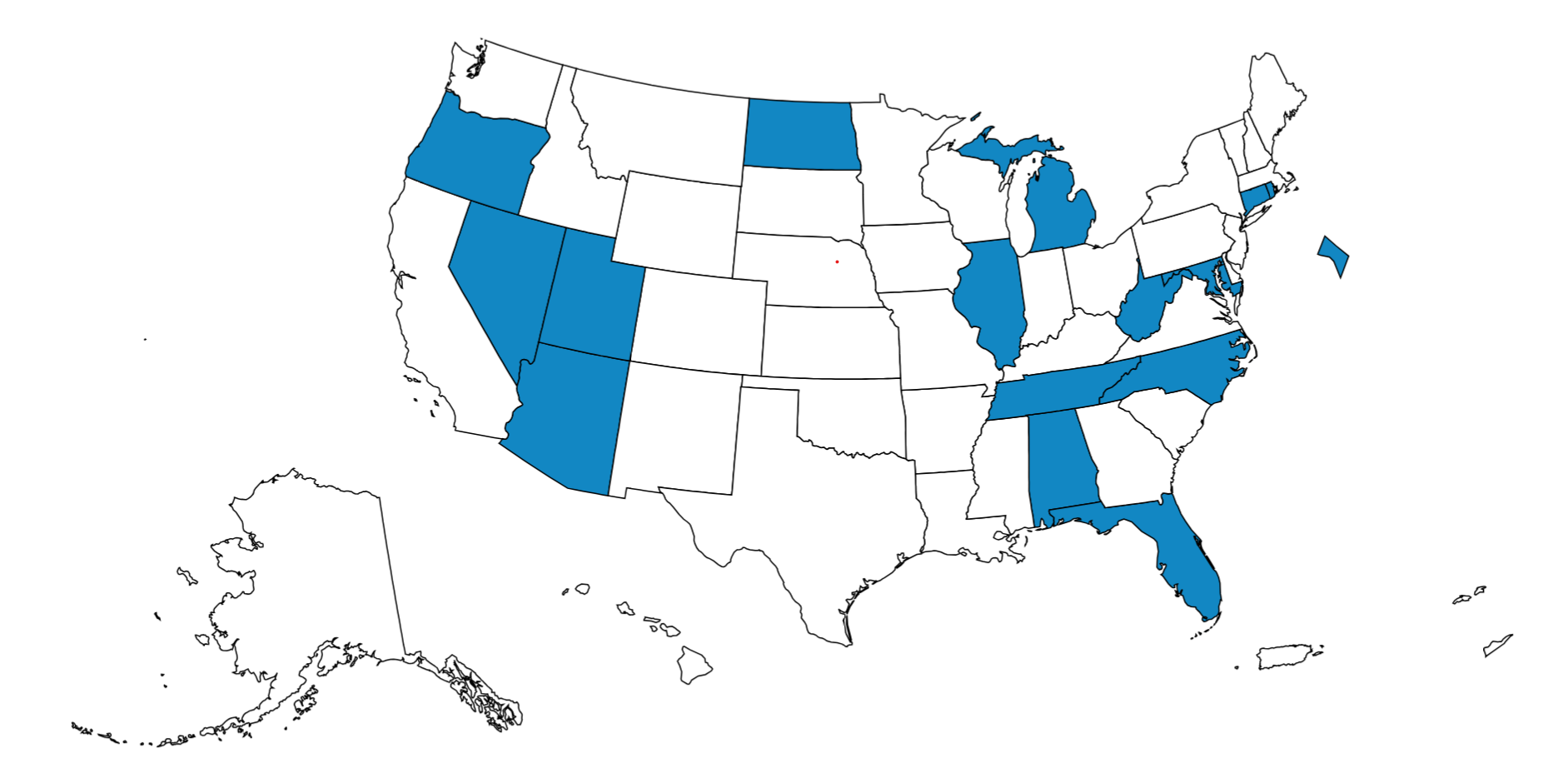With the passage of Illinois Senate Bill 1563 (the “Squatter Bill”), landlords in Illinois will see a meaningful shift in how unauthorized occupants are handled. Under the new law, squatters may be more readily treated as criminal trespassers rather than as de facto tenants, which means law enforcement will have clearer authority to remove them without waiting for a full civil eviction process.
The law explicitly states that nothing in Illinois’ eviction statutes shall be interpreted to restrict police from enforcing criminal trespass laws or removing individuals from occupied premises when they lack permission.
This change is intended to reduce the prolonged delays, legal costs, and structural ambiguity that landlords currently face when confronting squatting situations.
Here’s a detailed breakdown of Illinois Senate Bill 1563 (the “Squatter Bill”), what it does, how it changes the law, where it takes effect, and some of the practical implications to property management.
What is SB1563, the “Squatter Bill”
- SB1563 amends the Illinois Code of Civil Procedure, specifically Section 9‑102 (which governs when someone may recover possession of real property) to clarify that nothing in the “Eviction Article” should be understood to prevent law enforcement from enforcing criminal trespass laws or removing persons or property when there is criminal trespass.
- The bill is sometimes called the “Squatter Bill,” because it is intended to clarify that unauthorized occupants (i.e. squatters) may be removed as trespassers, rather than being forced through the formal eviction process in many cases.
Status & Effective Date
- SB1563 passed the Illinois General Assembly on July 21, 2025 and was signed into law by Governor Pritzker.
- The law will take effect January 1, 2026.
Key Provisions / What Changes Under SB1563
Here are the main changes or clarifications SB1563 introduces:
- No Impediment to Law Enforcement for Criminal Trespass. The law explicitly states that nothing in the Eviction Article may be construed to prohibit law enforcement from enforcing criminal trespass (or related Criminal Code violations), nor to interfere with their ability to remove persons or property when criminal trespass exists.
- Squatters Treated as Trespassers, Not Tenants. One of the practical impacts is that squatters (i.e. persons occupying a property without legal right) may more readily be removed via criminal trespass enforcement rather than being treated as tenants (which require eviction procedures). This helps property owners avoid lengthy eviction proceedings when the occupant is clearly unauthorized. It also means that presenting proof of ownership to law enforcement could support immediate removal in suitable cases.
- Fraudulent Documents / False Identities. The law addresses the issue of unauthorized occupants using fake leases or false identities to assert occupancy. Under the new law, using those fraudulent documents to claim rights could be treated as a criminal offense, making it harder for squatters to hide behind false pretenses.
- Eight Grounds for Replevin / Forcible Entry & Detainer. The amendment to Section 9‑102 modifies or clarifies the grounds under which a person entitled to possession can seek to be restored to property. It ensures that the existing avenues (forcible entry, peaceable entry, etc.) remain, but that they do not block law enforcement’s ability to act in criminal trespass situations.
What SB1563 Does Not Do / Limitations & Nuances
- It does not eliminate eviction law For many tenant‑landlord disputes (leases, holdover tenants, breaches, etc.), eviction procedures will still apply. SB1563’s change is about clarifying that those eviction rules do not block criminal trespass enforcement.
- The law is not retroactive to before its effective date; it becomes operative January 1, 2026. So situations before that date remain governed by existing law.
- Even under the new law, law enforcement discretion will matter. The statute gives clarity but doesn’t necessarily mandate police action in every case. Practical constraints (availability, evidence, local policy) may continue to affect outcomes.
- The property owner will need to prove or present clear evidence of legal ownership and that the occupant is unauthorized to justify law enforcement involvement.
- Cases with tenant claims, disputed rights, or complex title issues may still require judicial resolution. SB1563 does not resolve disputes over rightful possession when there is ambiguity.
Practical Implications for Property Owners, Landlords, and Tenants
- Faster Removals in Clear Cases: In situations where someone is obviously occupying property without permission (no lease, no legal claim), owners may more readily call law enforcement to act as in a trespass case rather than waiting for eviction court process.
- Reduced Legal Costs & Time: Avoiding lengthy eviction proceedings can save money and reduce the wait time for regaining possession.
- Stronger Deterrent to Fraudulent Claims: Because SB1563 bolsters the ability to penalize false documents or identity misrepresentations, it discourages misuse of claims of tenancy.
- Recordkeeping and Documentation Matters: Owners should keep title documents, deeds, proof of vacancy/no lease, and any notices or evidence of unauthorized occupancy ready for presentation.
- Need for Clarity in Law Enforcement Policy: Local police and sheriff’s departments will need training and clear policies to implement the new authority effectively.
- Potential Conflict Zones: Disputes where the occupant claims some right (tenant, squatter’s rights, adverse possession, etc.) might still face legal challenge or judicial determination.
About the Author
Arthur R. van der Vant is an Asset Manager and a court-appointed Illinois Receiver with extensive experience in managing real properties, businesses, and complex assets for private individuals, investors, lenders, and courts.
Contact
Arthur R. van der Vant, tel. 312-607-4646, info@3pentacles.com Three Pentacles, PLLC https://3pentacles.com/











